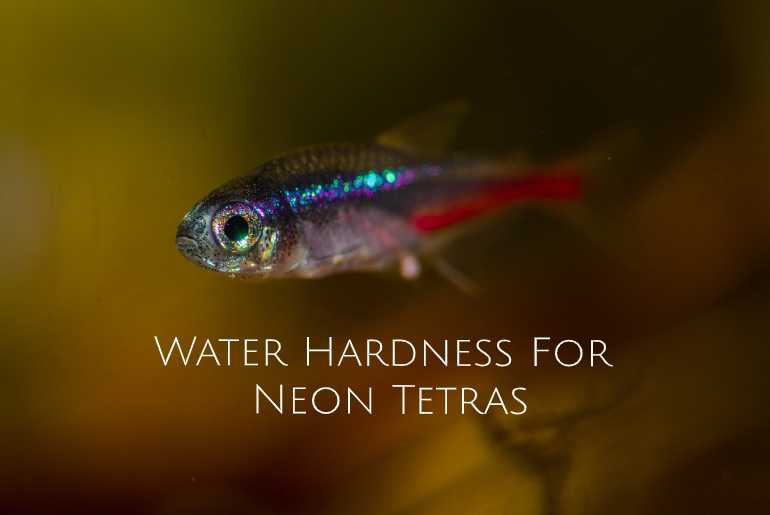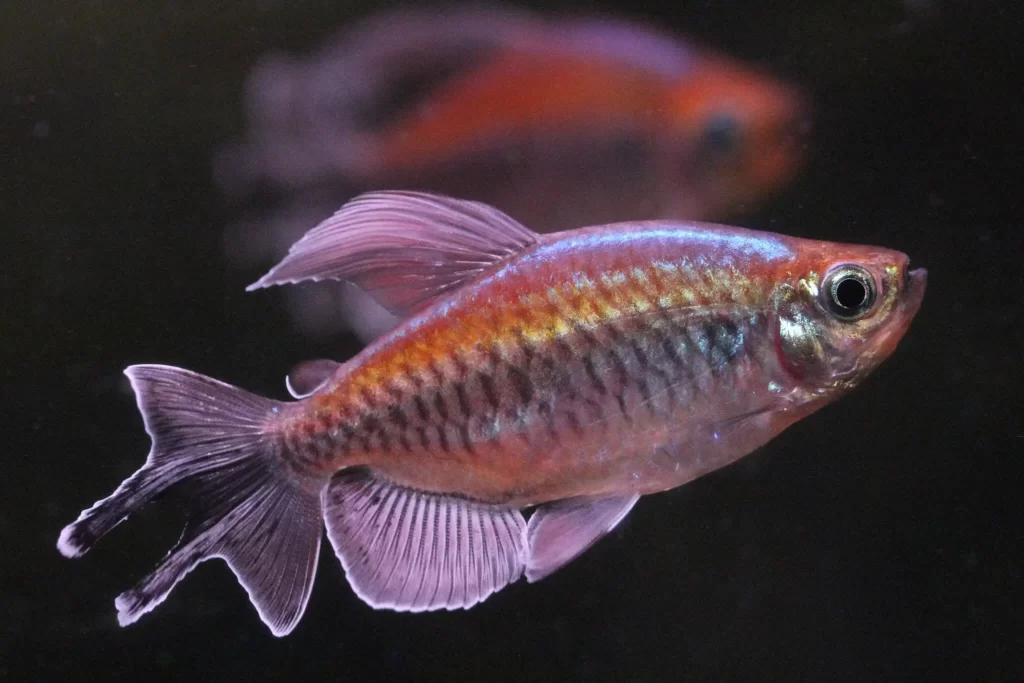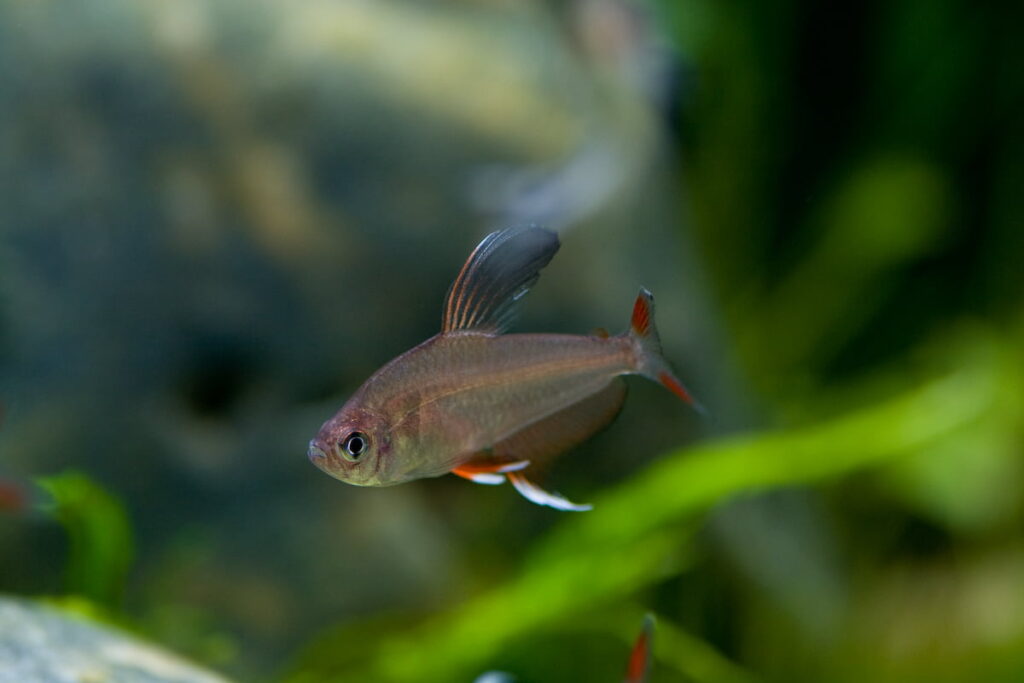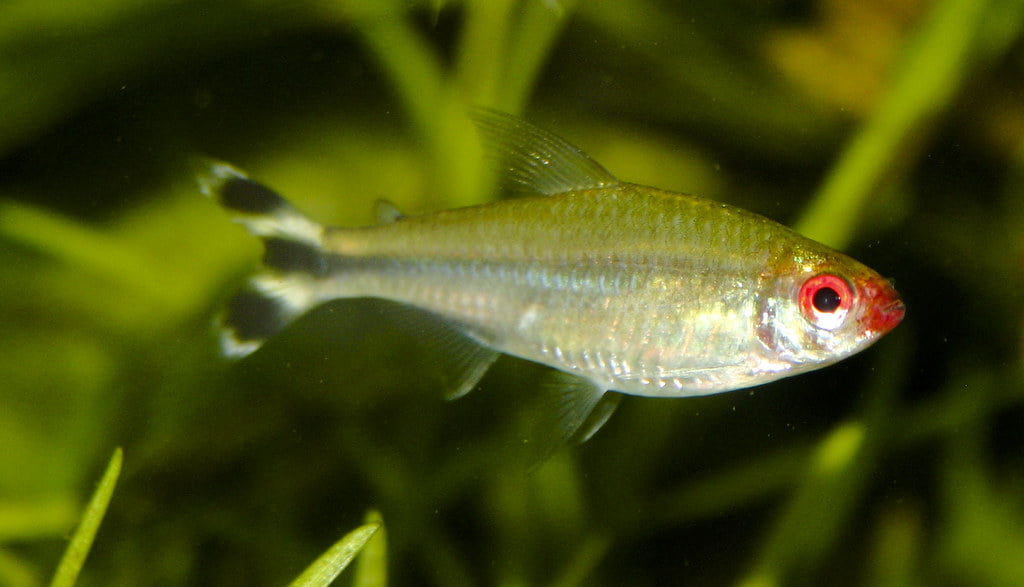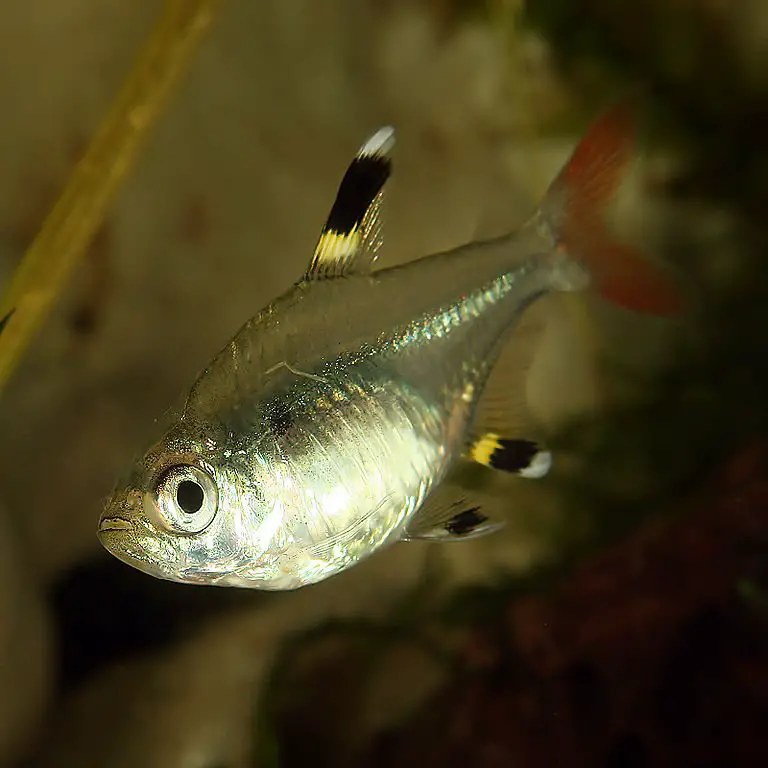To provide a healthy and comfortable life to an aquarium fish like Neon Tetras, determining the correct water hardness is vital. However, many fishkeepers, especially the beginners, take the task of managing the water hardness very lightly. But remember, it is also essential to look for the water hardness to keep your Neon Tetras safe and sound. Therefore, to know about the importance and necessity of water hardness for Neon Tetras, make sure you read this article till the end.
Starting with, ‘What is the requisite water hardness for Neon Tetras?’ Firstly, you need to know that the water hardness is recorded in both carbonate hardness (dKH) and general hardness (dGH). So, the requisite general water hardness for the Neon Tetras is between 2 degrees of general hardness (2dGH) to 10 degrees of general hardness (10dGH). Similarly, the requisite carbonate hardness is between 1 degree of carbonate hardness (1dKH) to 2 degrees of carbonate hardness(2dKH). Meaning, the Neon Tetras require soft water not just to live finely but also to thrive better in an aquarium.
But before getting into the broad details of the water hardness for Neon Tetras, primarily learn about the basics about them.
Swift Summary Of Neon Tetra
Neon Tetra, scientifically known as Paracheirodon innesi, is one of the peaceful, schooling fish. The neon tetra is a tropical freshwater fish that has a strikingly bright color pattern of red, silver, and blue on its body. Such a charming appearance of Neon Tetras generally attracts many fish lovers.
Moreover, their energetic, peaceful, and non-aggressive nature makes the aquarium keeper easy to handle. Also, they can get along with other tankmates without any difficulty.
However, it is not tough to look and care for the Neon Tetras. Still, some people find the work of managing the aquarium difficult. Mainly, they are unsure about the requisite water hardness for them.
Acquire About The Water Hardness – In Short
Water hardness is one of the crucial parts to look for while keeping any fish species in the aquarium. Once you understand the term water hardness, you will eventually know its importance for your Neon Tetras too.
Generally, water hardness refers to the elements and minerals dissolved in the water. These elements and minerals play a vital role in maintaining a suitable and healthy habitat for the Neon Tetras. Carbonate Hardness (KH) and General Hardness (GH) determines the degree of hardness in a particular water tank.
Similarly, hard water refers to the greater number of elements and minerals contained in the specific water. On the other hand, soft water refers to the fewer elements and minerals held in the water tank.
Water Hardness For Neon Tetras
The Neon Tetras are tropical freshwater fish, which are peaceful and energetic. They are easy to handle if you care about every tiny requirement of them. In between this, looking after the water hardness in the aquarium for Neon Tetras is also significant.
Being a tropical freshwater fish, the Neon Tetras cannot grow finely and shine in any casual water parameters in the aquarium. They require the soft water condition to live well in the tank.
Besides, note that the medium to hard or firm water state can create crucial circumstances for the Neon Tetras. Such water conditions bring a negative impact on them. Therefore, soft water is suitable for Neon Tetras.
To know about the correct water hardness for Neon Tetras, read out the classified hardness level below.
Carbonate Hardness/Alkalinity
Carbonate hardness/alkalinity refers to the amount of carbonate and bicarbonate in the aquarium water. These are the salts of carbonic acid, which is vital for the Neon Tetras to survive in the tank water.
Here, the formation is possible if you dissolve the carbon dioxide gas into the water. Also, it is a temporary hardness in water as it is removable by boiling the water.
For the Neon Tetras, the level of 1-2 degrees of carbonate hardness (dKH) is suitable. As they are tropical fish, they don’t require a high level of alkalinity.
If the water has more than 2dKH, the Neon Tetras will stress a lot. Later, there will be a chance of illness in them.
General Hardness
Usually, many people confuse the general hardness with the carbonate hardness or alkalinity. So, acquire the general hardness refers to the amount of calcium and magnesium elements, mainly in the water. The general hardness is a permanent element, which is irremovable even if you boil the water.
So, for your Neon Tetras, the level of general hardness of 2 – 10 degrees(dGH) are most suitable. The maximum of 10 degrees of general hardness makes the aquarium water beneficial for your Neon Tetras.
However, if your tank has a high form of water, the Neon Tetras can adjust to medium-hard water. But it will be safe if you provide them soft water only.
What Will Happen If The Water Hardness Is Not Correct For Neon Tetras?
If you don’t want your Neon Tetras to suffer severely in the aquarium, you must have to manage the correct water hardness for them. A fluctuation and a higher or lower degree of hardness can affect your Neon Tetras health.
Both the general hardness and carbonate hardness should have an exact degree in the aquarium water. If not, there will be adverse effects like:
Irritation
Being a tropical fish, the Neon Tetras should get the right degree of both general hardness and carbonate hardness in the aquarium. If not, they will start feeling discomfort in the tank. Such trouble will slowly disturb and annoy them.
As a result, the non-aggressive Neon Tetras will not get along with other tank mates. Also, the irritation will make them feel uneasy and aggressive. This behavior of Neon Tetras can make the environment harsh inside the tank.
On the other hand, the irritation can directly affect the Neon Tetras mental health. That’s why an accurate degree of water hardness is the most in the aquarium for Neon Tetras.
Fluctuation In pH level
If you are unaware, hear this out. The drop in the carbonate hardness (KH) creates an imbalance in pH level. And the pH level is something Neon Tetras should get accurately.
Generally, the maximum degree of carbonate hardness acts as a sponge to absorb the hydrogen ions released in the water. As the maximum carbonate hardness absorbs the ions, it prevents the downfall of the pH level.
So, if the carbonate hardness is not accurate, the pH level also fluctuates.
Inactiveness
The entire life of any fish depends on the water. Likewise, the Neon Tetras prefer a correct water hardness in the tank. If any fluctuation or imbalance of hardness level arises, its effect on them is visible easily.
Inactiveness is also one of the changes that you can see in the Neon Tetras due to an imbalance of hardness level. In general, the Neon Tetras are quite energetic and easygoing fish.
But when a situation like this arises, they get inactive and try to hide in most of the hiding areas. They will highly try to avoid such improper water hardness levels.
Sickness
The incorrect hardness level refers to the unsuitable habitat for the Neon Tetras directly. For a few times, they can adjust in medium or hard water levels in an aquarium. But gradually, the water will start hampering them physically and mentally too.
The Neon Tetras will start stressing and feel inactive in such aquarium water. They can have irritation feelings and couldn’t get along with other tankmates.
Not only this, physical sickness will make them feel very low. The illness can be general to severe. The most severe disease found in Neon Tetras due to improper hardness in water are:
- High blood pressure
- Unseemly egg development
- Defect in kidney function
Therefore, it is vital to maintain the correct water hardness for Neon Tetras. Otherwise, they might suffer harshly, which can cost their life too.
Maintaining The Fluctuating Water Hardness In Aquarium
If you want to give a good and healthy life to the Neon Tetras, you have to keep your eye on every minor detail, including the hardness of the aquarium water. And it is not that difficult work to do too. Paying proper attention to the tank can help you ease down many difficulties.
Similarly, if you doubt or are sure about the fluctuation in water hardness then, here is what you can do to make things better.
To Increase Hardness For Neon Tetras
Honestly, if you see the level of water hardness lower than required, increasing it can be simpler rather than decreasing. So, if you are stressing over the decreased water hardness, read this out to help your Neon Tetras:
- For the calcium carbonate (KH), sodium bicarbonate or baking soda can help. But remember to measure the right amount of sodium bicarbonate to increase the hardness (dKH).
- You can look for a chemical buffer (a solution that consists of the mixture of either a weak acid and its conjugate base or a strong acid and its conjugate base) for raising the water hardness as required. Chemical buffers are available in many online stores, which can help to increase the GH and KH levels.
- A limestone called Texas Holey Rock provides necessary minerals and calcium to parasite into the aquarium water. As it is not any chemical but limestone but, you should keep them in the tank gradually, not all at once.
Therefore, these are some measures that you can obtain to increase the decreased water hardness in your aquarium. But make sure, after looking after the exact degree of dropped hardness, you choose for any of them.
To Decrease Hardness For Neon Tetras
As mentioned before, decreasing the hardness in the tank of Neon Tetras can be slightly hard. Firstly, you should learn about the main idea to reduce the hardness level. The removal of the calcium and magnesium ions can help to decrease or soften the hardness in the aquarium water.
To help you in the removal of excess calcium and magnesium ions from the water, here are a few points that you can think of:
Reverse Osmosis Filtration
You can look for the Reverse Osmosis filter as it can help to decrease the water hardness. This filter removes all the excess elements and minerals from the water.
For the use, you can mix some tap water for having the necessary degree of water hardness. AquaFX Barracuda RO/DI Aquarium Filter can help you reach the level of hardness you want.
Usage Of Driftwood
Getting driftwood in the tank can help in reducing the water hardness. The driftwood discharge tannin (a substance of yellow or brown color, which consists of gallic acid) will absorb the elements and minerals gradually that results in the softening of water.
Usage Of Rainwater
The rainwater can also help in decreasing the water hardness in the tank. But as it can be uncertain for Neon Tetras, the chemical buffers are essential to mix up with it.
Thus, these are some of the steps that you can take to decrease the excessive degree of water hardness in the Neon Tetra’s aquarium.
If you are a beginner fishkeeper and not sure about the execution work of this process, you can ask an experienced fishkeeper to monitor all the procedures.
Is It Difficult To Maintain A Proper Water Hardness For Neon Tetras?
Firstly, learn that the necessary water hardness for Neon Tetras is crucial in the aquarium. As they are tropical freshwater fish, the right degree of hardness is significant for their survival. Otherwise, they can suffer from various troubles, which can even be life-threatening.
Talking about the difficulty in maintenance of the water hardness in the aquarium, I would say it is not that troublesome. As you bring Neon Tetras home, various responsibilities pile up. Amongst them, looking for an accurate degree of water hardness is one of them.
Similarly, if you devote at least 30 to 40 minutes of your time in a day for monitoring the Neon Tetras, your fish will not suffer from any severeness. Also, they can have not just a healthy life but a shining course always in the aquarium. Therefore, it is not that difficult to look for the proper water hardness for Neon Tetras.
How To Monitor The Water Hardness?
If you are someone who has held the number of fish species before, monitoring the water hardness cannot be a new thing for you. But for the beginner fishkeepers, you must learn about the monitoring way of water hardness.
For the monitoring of the exact degree of water hardness, you can get a water test kit. It can be available at your nearby place, which is simpler to use as well.
A test kit like FUNSW Aquarium Test Strips will help you to monitor water hardness along with pH levels. It lets you know about the water hardness and other nitrate levels of the aquarium of your Neon Tetras tank.
Monitoring The Water Hardness For Neon Tetras – How Often?
As mentioned, you can get a water test kit to know about the precise degree of water hardness. But getting a test kit will not only help you. You have to put some effort into looking after the tank by timely monitoring of the water hardness level.
In brief, the monitoring of water hardness is necessary at least twice a month with the help of a testing kit. Daily analysis of the water hardness is not that necessary.
But if there are breeding Neon Tetras, it is essential to test the hardness in the water at least once a week. It is because they require an exact degree of water hardness. So, at this moment, testing the water hardness twice a month will not be sufficient.
Some Frequently Asked Questions
What Is The Absolute Water Temperature For Neon Tetras?
The absolute water temperature for Neon Tetras is 72 to 78 degrees Fahrenheit (22 to 25 degrees Celsius). If the water temperature is either above or lower than the mentioned temperature, your Neon Tetras will suffer critically.
Do Neon Tetras Require an Aquarium Heater?
Yes, the Neon Tetras requires an aquarium heater to monitor the temperature level. As a tropical fish, it is necessary to keep them at a pleasant temperature. For this, an aquarium heater plays a significant role by sustaining the accurate temperature level.
What Are The Best Tank Mates For Neon Tetras?
The best tank mates for Neon Tetras are:
- Guppies
- Mollies
- Corydoras Catfish
- Zebra Danios
- Cardinal Tetras
- Otocinclus Catfish etc.
Conclusion
At present, most people prefer Neon Tetras due to its fascinating features. They are easy to handle as neon tetras are non-aggressive. Also, they easily get along with other tank mates. Yet, people feel the water hardness for Neon Tetras is something difficult to manage.
So, in brief, the Neon Tetras requires a water hardness of 2 to 10 degrees of general hardness (GH) and 1 to 2 degrees of carbonate hardness (KH). However, time often, the hardness can fluctuate from soft to hard. For this, there are many measures that you can follow as well.
I hope this article was helpful for you to know and provide an accurate water hardness to your Neon Tetras. Keep the fishes safe and sound.
